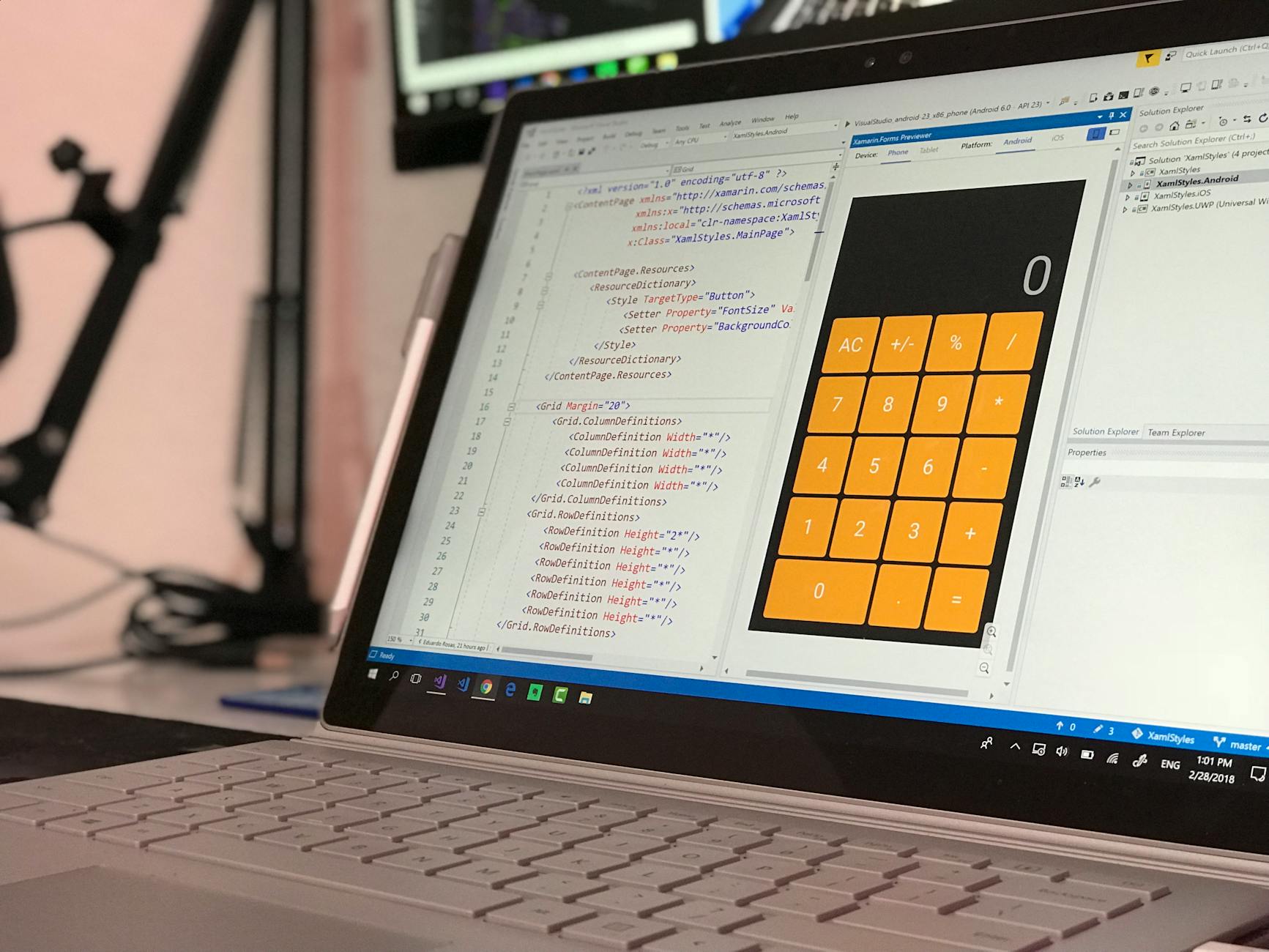As a project owner, you may ask yourself: which mobile development approach will benefit my vision most? The answer is: it depends on the project, although most mobile app development companies will say native development is the best option out there.
However, the most effective mobile development approach is the one that accommodates all your requirements, and optimizes development time and production costs of the app you are building.
Sometimes, the mobile app development process can be challenging. Your list of requirements should include flexibility and the ability to apply changes that correspond to your business needs and market demands timely. You then have to think about how to reach and engage every user. Finally, you need to decide on numerous technical factors like operating systems, development tools, SDKs, and so on.
Choosing a Winning App Development Strategy
Watch our webinar to uncover effective mobile development approaches and launch your app.
The purpose of this article is to put the spotlight on different mobile development approaches and guide you through the best way of developing applications based on what you need.
Native App Development
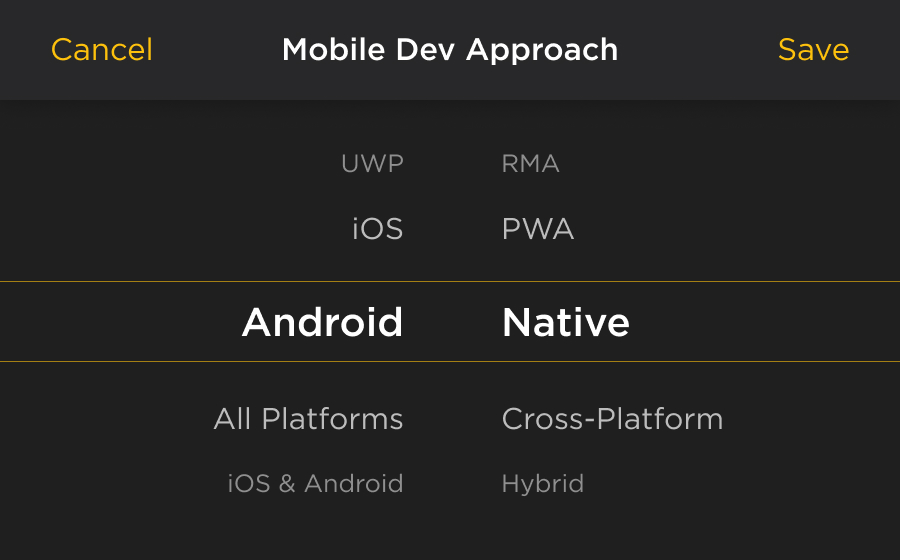
Native app development is the use of platform-specific programming languages, software development kits, and development environments offered by the OS providers. In other words, if you are planning an app for iOS and Android, these apps will be developed separately for each platform with the use of completely different technology stacks.
This approach has significant benefits and remains the most preferable among mobile app developers. First of all, native apps support all available features of the platform and compatible devices. At the same time, you can create a unique user experience with native tools and be sure that each OS user feels at home. Furthermore, native apps have higher performance and responsiveness.
Advantages of Native App Development Approach
- Overall, native apps have better performance
- Platform-specific UI implementation
- 100% support of OS features
- Total access to hardware-related features
- Clear app update path and supported toolset
- Native apps are highly reliable, secure, and responsive
Learn more: Mobile Technology Stacks for Native App Development
Cross-Platform App Development
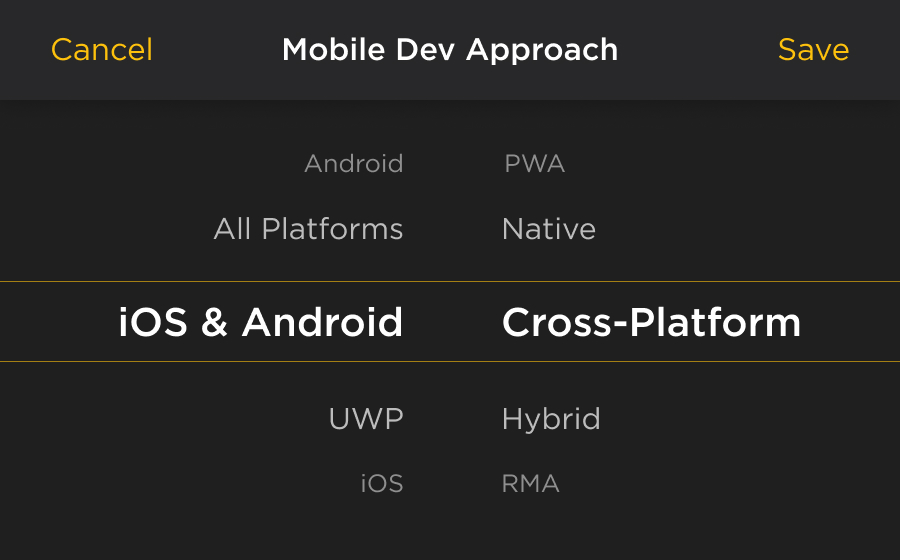
A cross-platform mobile application, as the name implies, simply means an app that runs on different platforms. The cross-platform approach is a good alternative to native development, as it solves the challenge of creating a separate application for each mobile platform. In other words, this concept allows to deliver apps across multiple platforms simultaneously with the use of languages and tools different from native toolsets offered by Google and Apple.
Following this approach, developers use cross-platform frameworks and tools based on JavaScript or .NET/C#. As a result, if you decide on a cross-platform approach – be it for iOS, Android, or Web apps – you need just one team with the same skills for all platforms. Moreover, when you need to release all your apps at the same time, you can do it without compromising on team size and timeline.
Today, the most popular cross-platform technologies have wide support communities and continually evolve. Anyway, they inevitably lag behind the mobile OS updates, and there is a higher risk of an unclear upgrade path or major code rewrite.
Advantages of Cross-Platform Development Approach
- Uniformity across all platforms
- Effective for budget control or low funding
- Implementation is easy
- Simultaneous publishing for all platforms
- The source code is reusable
- High demographic coverage
- Fast time to market
Hybrid App Development
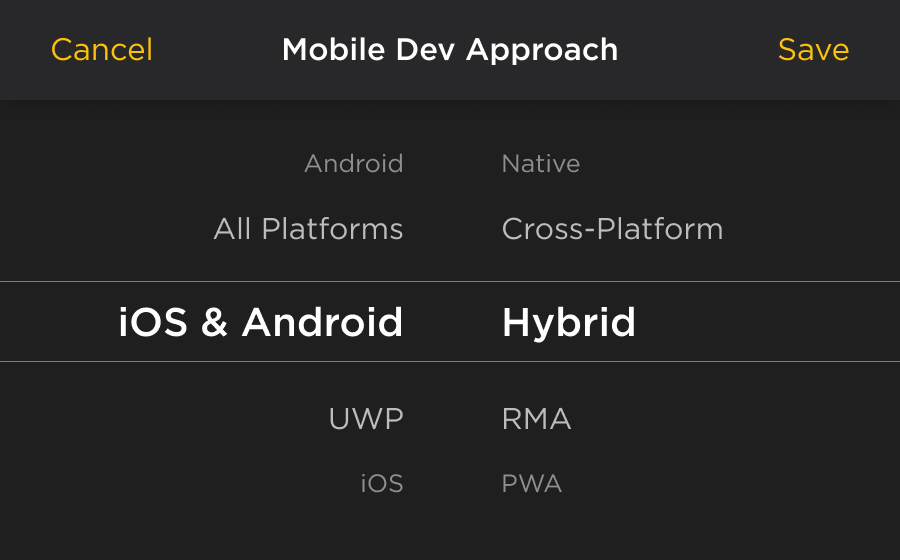
Hybrid application development is classified as a form of cross-platform. In this development approach, the application core is developed by the use of standard web technologies and tools like JavaScript, CSS, and HTML5, and then executed within a native shell.
Resulting apps from the hybrid development approach have the speed of a regular web application and a user experience similar to any type of native mobile app. Notably, the use of a single code base enables deployment to all platforms lowering the cost if compared to native apps. Lastly, hybrid apps with hardware-dependent features have access to device hardware components and native platform libraries.
Advantages of Hybrid Development Approach
- Single development team
- Short time to market
- Simple portability of code
- Capable use of hardware components
- Same user experience as a native mobile app
- Lower cost of development
- Ability to work on and offline
Rapid Mobile App Development: RMAD
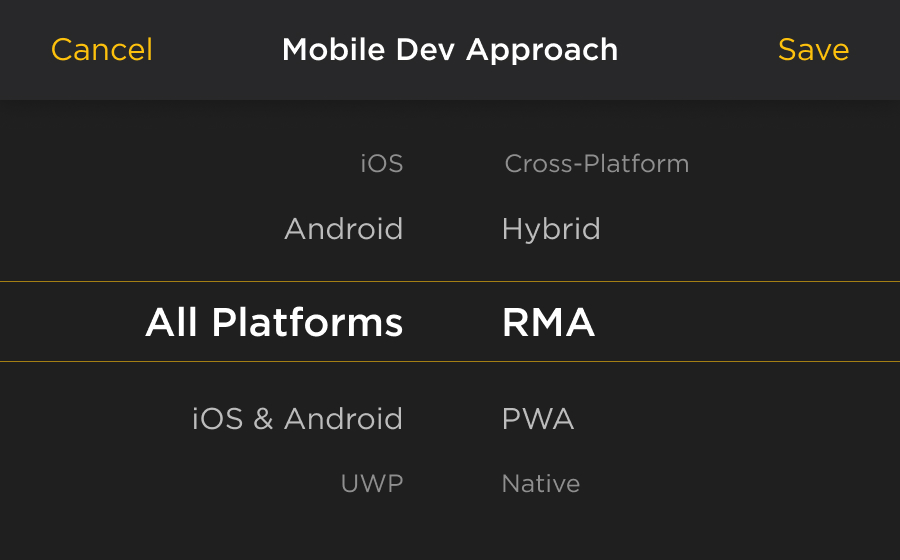
The Rapid Mobile App Development approach is used to develop cross-platform applications in a short time. It involves the usage of specific code-free or low-code development tools to program simple apps for various business solutions.
To start with, this approach is very similar to rapid application development methodology based on little panning, initial prototyping, recyclable software components, and the use of the adaptive process.
Rapid mobile developers declare the functions and features of applications on the frontend, and the backend translates the specifications into code. In this case, the frontend uses metadata to function. Effectively, this is done by summarizing the major information about the functions of an application like asset managers or user interface elements in a database. Thus, it cuts off the need for database coding.
Advantages of RMAD Approach
- Higher Return on Investments
- Low complexity in the development process
- Fits multiple project types
- Low-code/no-code development
- Developers require little or no experience
- Reusable code base
Progressive Web Apps: PWAs
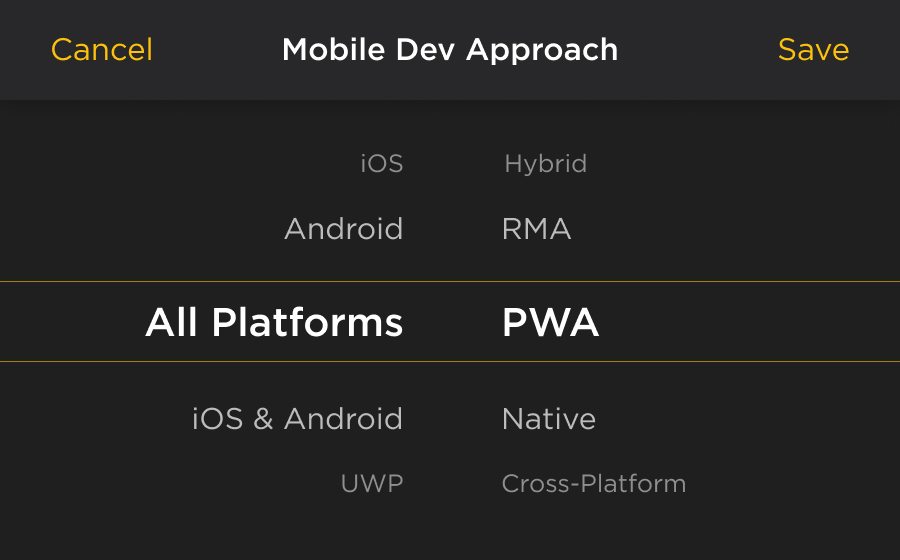
The last type of development approach, but not the least, which we cannot exclude is the Progressive Web App development. In this case, the engagement of HTML is principal here.
PWAs are actually not mobile apps, but they are similar in appearance and function to any native app. They are web applications specially developed with an adaptable and user-friendly interface for mobile users.
There is no need whatsoever for a user to download the resulting application from an app store. Progressive web apps function without a regular browser and can be installed on the home screen of any mobile or desktop device. The beauty here is that they are specified to be responsive and connect independently.
With their browser tucked away, they have the disadvantage of being limited in implementation because you need a browser vendor APIs to access mobile hardware features.
Advantages of Progressive Web Apps
- Easy app maintenance
- The use of a single codebase
- Mobile-friendly UI
- You don’t need an app store to host or download
- Works on and offline
A Step in the Right Direction
After evaluating various mobile development approaches, their key attributes, and benefits, it gets clear that each approach yields a distinct outcome for the resulting app.
For you as a project owner, it should be in your best interest to define the purpose of your mobile application in accordance with the exact needs of your target audience. This will help you estimate the project timeline, and the financial and technical resources needed, after which you will be able to choose the most favorable development approach to follow.
Applications are distinct in their own ways. If your goal and desire is to develop a long-term project, an app that will be responsive, have a superior quality user experience, smooth performance, and reliable security, then the native development approach is very advisable. On the other hand, if you are looking to compromise in budget plans or you desire speed in development time, you can consider the cross-platform approach.
At Velvetech, we develop top-notch mobile apps for our partners and clients covering a vast range of business needs and purposes. We have shown a strong capacity to deliver as a trusted IT consulting, mobile and web development vendor. Our specialists would be happy to discuss your mobile development challenges and come up with the most appropriate solution tailored to your needs.





















